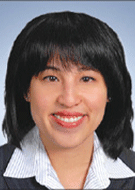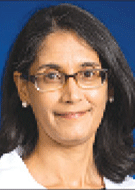Radiology Residents Find Jobs Virtually in the Era of COVID-19
Zoom-interviewing may be the way of the future post-pandemic



When Florence Doo, MD, radiology resident at Mount Sinai West, New York City, was preparing for fellowship interviews in 2020, she considered several factors.
She thought about where she would want to live, what kind of institution she wanted to work for and how to best answer questions about her experience and goals. In a normal year she would have rehearsed her answers on the plane while traveling to meet possible co-workers and tour her future hometown.
But 2020 was anything but a normal year. Instead, for a few days in November, Dr. Doo sat in front of her computer and did virtual interviews with 10 different fellowship programs. By Thanksgiving she had matched with her top program for an abdominal radiology fellowship, Stanford Medicine, Stanford, CA — all without leaving the state.
Dr. Doo is in the same position as thousands of residents and medical students whose next step in their medical education was disrupted by the COVID-19 pandemic that took hold in early 2020. As travel was either limited or on hold, institutions and students have had to adjust to a virtual interview setting.
“It was a great way to see the programs,” Dr. Doo said. “I do wish I was able to visit in person for those intangible interactions and experiences you would have by visiting and walking the campuses, but everyone is doing their best.”
Advantages, Challenges
In a 2020 article she co-authored in Academic Radiology, Aparna Joshi, MD, a pediatric radiologist and assistant professor of radiology at the University of Michigan, Ann Arbor, and colleagues discussed the pros and cons of video interviewing and offered guidance and specific measures to optimize the experience.
According to the article, one of the biggest advantages is the financial benefit to applicants, who normally foot the bill for travel, lodging and other expenses each time they interview at a new institution. She cited a recent study from the Association of American Medical Colleges that found that interviewing for residency costs a student between $1,000 and $11,580, with a median amount of approximately $4,000. And the virtual experience opens up other opportunities as well.
“Applicants who might not be able to interview with our program under ordinary circumstances because of time, expense, and geographical distance, may seriously consider our program based on what they see and whom they meet during the virtual interview day,” Dr. Joshi said.
On the other hand, there is serious concern that top students may be accepting more interviews than they would in a normal year, leaving other students with fewer interviews than would be anticipated based on their qualifications.
In December 2020, the Association of American Medical Colleges (AAMC) issued an open letter detailing concerns about residency interview numbers raised by senior medical education and student affairs leaders who reported a maldistribution of residency interview invitations. AAMC offers recommendations for instituting a successful match program during such challenging times.
Adapting to a New Process
The University of Michigan interviewed about 140 students over Zoom to fill 11 spots in the diagnostic radiology and interventional radiology programs, Dr. Joshi said. Because the university had been mostly working remotely since March, the transition to online interviewing was not too difficult in terms of technology.
Students were invited to participate in mock interviews and encouraged to their technical connection before the actual interview. The night before, current radiology residents joined applicants for a casual Zoom meeting to socialize and ask questions about the program, as they would have at an in-person mixer event.
After the interviews, applicants took a virtual tour of the facility and were invited to attend a virtual conference to observe how faculty and residents interact.
At the University of Southern California, Los Angeles, M. Victoria Marx, MD, professor of clinical radiology and associate residency program director at the Keck School of Medicine, said the university has taped video introductions to each department for medical students applying to residency programs.
At the end of each interview day, the group of interviewers met to discuss the applicants. Three interviewers were socially distanced and wore masks in a large conference room while two others joined via Zoom.
Dr. Marx said that the initial success of the virtual interview experience has made it likely that the remote interview process will continue as an option post-pandemic for some.
“We have all become so comfortable with conducting professional activities remotely using video conferencing such as Zoom, I don’t see it completely going away,” said Dr. Marx, president of the Association of Program Directors in Radiology.
Missing In-Person Interaction
While the transition to virtual interviewing may not be especially difficult for academic institutions, students may feel like they are missing something during the remote process, Dr. Marx said.
“It’s less expensive and time consuming, but I think everybody is concerned about the potential loss of informal interactions that can teach you so much about the culture of a place,” Dr. Marx said.
One concern is that more residents than usual may end up looking to transfer because the program they chose ultimately was not a good fit, she added. Or, Dr. Joshi said, some applicants might only rank places where they have lived or visited before. For example, Dr. Doo, who is originally from Southern California, said being familiar with the West Coast and within driving distance of her family, whom she has not seen since the pandemic began, was a factor in her decision making.
While the future beyond the pandemic is uncertain, Dr. Joshi said virtual interviewing is likely to continue in radiology residency programs. “I suspect it will be an option in the future at many programs in some form — I hope it will be,” Dr. Joshi said.
For More Information
Access the article, “Video Interviewing: A Review and Recommendations for Implementation in the Era of COVID-19 and Beyond,” at academicradiology.org.
Read previous RSNA News articles about adaptations for residents and fellows during COVID-19:
- Radiology Trainees on the Front Lines of COVID-19
- COVID-19 Upends Radiology Trainee Education and Preparation
- COVID-19 Pandemic Alters Long-Term Plans for Radiology Trainees